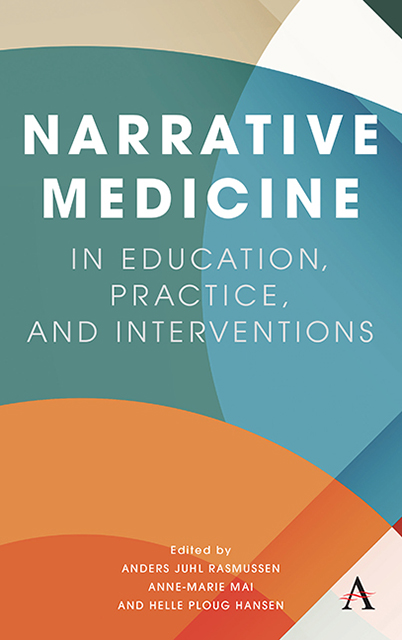Chapter 9 - Poetry Prescribed for Loneliness: Shared Reading for Men Near Retirement
Published online by Cambridge University Press: 08 June 2023
Summary
In this chapter, we will be looking more closely at ways in which the under-lying principles of narrative medicine can be used in new contexts. Using concepts from narrative medicine and literary research alongside qualitative findings from the project Read, Man! we suggest that shared reading can be a gateway to reflection, literary appreciation, and social communities and as such may be able to relieve mental health problems such as depression and loneliness (Billington et al., 2010, 2013). In this way, our knowledge of narrative medicine can benefit groups other than patients and healthcare personnel. At the same time, we can learn more about how literature might be a health-promoting resource.
Art, culture, and health
The links between art, culture, and health make up a growing interdisciplinary area of research that has gained international traction over recent decades. In a review of the documentation of the significance of art and culture for health and well-being in 2019, the World Health Organization (WHO) has singled out art and culture as important resources that can be integrated into various forms of health initiatives (Fancourt and Finn, 2019). Their review was based on a sur-vey of 900 publications, 200 of which were themselves reviews of 3,000 individ-ual studies. This makes it the most comprehensive pool of knowledge that has so far been made on the significance of art and culture in relation to health. It provides documentation for the ability of art and culture to support health services by, for example, promoting well-being and combating social inequality, reaching out to groups that are otherwise difficult to make contact with, and training health professionals in empathy and dialogue (ibid.).
Another smaller Danish review, surveying the literature on the value of art and culture in health initiatives, establishes that participating in artistic, cul-tural, or creative activities can promote mental health (Jensen, 2017). The effects emphasized in relation to such initiatives are increased quality of life, improved well-being and bodily understanding, as well as reduction of negative feelings and anxiety among participants. WHO also indicates the positive effects of these types of initiatives on a range of specific mental health targets and, in particular, underscores life satisfaction, a sense of meaningfulness, self-assessed health and cognitive abilities (Fancourt and Finn, 2019).
While WHO has emphasized the advantages of integrating art and culture in health initiatives from a general standpoint, several specific research projects on the topic are continuously emerging.
- Type
- Chapter
- Information
- Narrative Medicine in Education, Practice, and Interventions , pp. 153 - 166Publisher: Anthem PressPrint publication year: 2022

